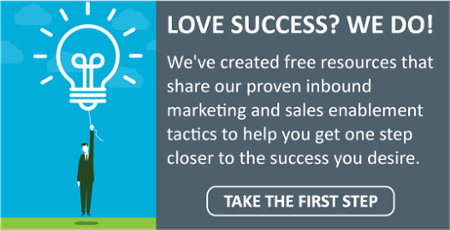
I’ve been a Joseph Campbell fan since high school when my English teacher, Mr. E., taught us about the importance of finding and following our own Hero’s Journey in life. He was an exceptional teacher and his message for us to follow our bliss has carried with me throughout my entire adult life.
I became so intrigued by how mythology impacts different parts of our lives, that I went out and bought The Power of Myth and have since read it at least four times in the past 12 years. When we really break down every meaningful experience in our life, we can trace it back to themes and symbols that appear in ancient mythology, and quickly we realize the effect that stories have on who we are and what we’re doing here. Stories give us meaning, perspective, and can even help guide us through many of life’s biggest (or smallest) moments.
That’s great, but what does this have to do with marketing?
While at the HubSpot INBOUND conference last week in Boston, the topic of stories came up over and over again. Our first two keynotes, Seth Godin and Brené Brown, both talked about the “stories we tell ourselves,” and many other sessions seemed to touch on the power of storytelling in marketing and sales.
Here’s the thing… as a consumer, most (if not all) of the decisions we are making on a daily basis are based on stories. The stories we live and the stories we tell ourselves.
There’s the story of a parent who is searching passionately to do what’s best for his children (safe, natural products but also affordable) and to be financially responsible. Or maybe it’s the Marketing Director of a company that is hoping to prove herself in a new role. She’s got big ideas and a new way of thinking, but she has to battle the corporate obstacles to get buy-in and make a difference.
It’s critical as a brand manager, a marketer, or a sales professional to really understand your customer’s story (and there's likely more than one!) This goes beyond just understanding the buyer’s journey and when they’re using mobile vs. desktop, or how early research and comparative pricing comes into the picture. This is about their journey as human beings and what is motivating them to buy (or not buy) your product or service.
It’s naturally easier to imagine these stories for B2C products. But this can be just as relevant for B2B because really, is there such thing as B2B? Are we ever selling to a “business”? No, we are always selling to a person. Whether B2C or B2B, we are always tapping into the motivations and needs of an individual or a group of individuals.
A local home improvement company doesn’t need more leads. But the owner of a local home improvement company does need to pay college tuition for his three children, and make sure they have enough revenue coming in to deliver payroll on time and keep food on the table for the many people he’s responsible for employing.
How to discover your customer’s story:
The easiest way to get started doing this is to have real-life conversations with your customers. Ask them questions, try to uncover their motivations. Also, talk to your client-facing employees. If you have salespeople who are building and maintaining relationships with buyers, then sit down to really understand how each customer’s story is different.
Then and only then can you start to connect the dots and find stories that overlap. Taking this information into account when building your marketing strategy is the first step to really connecting and engaging with your customers in a truly authentic way. And it’s not just about being “human” in a world that is becoming more and more technology-based, it’s about having better marketing, better content, better websites, and better sales conversations.
Once you truly understand your customer’s story, you’ll be able to make wiser business decisions that are based on real personalized needs vs. the perceived needs of a demographic group.
.png)







Leave a Comment